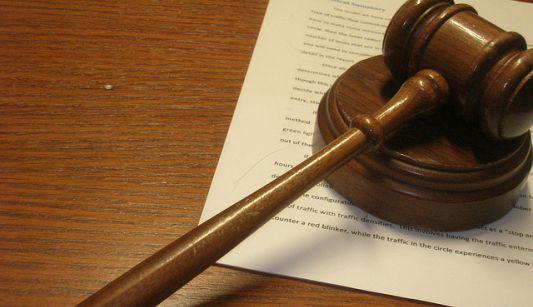New DMCA Excemptions Announced: Rooting Phones Remains Legal, No to Tablets
The Librarian of Congress does more than just brush off dusty off old tomes and appoint the Poet Laureate; every three years, the Librarian also issues exemptions to the Digital Millennium Copyright Act, granting people the official right to break the DRM protection for copyrighted works under special, very specific circumstances.
Current Librarian James H. Billington just handed down the newest set of exemptions, and it's a mixed bag for mobile mavens; you'll still be able to jailbreak your phone going forward, but you won't be able to unlock it carte blanche beyond January of next year -- and don't even think about cracking your iPad.
The Librarian refused to exempt tablets from the DMCA due to the shifty definition of a slate; you and I might know one when you see one, but Hadley argues that isn't good enough in the eyes of the law. "For example, an e-book reading device might be considered a 'tablet,' as might a handheld video game device or a laptop computer," he wrote. Did you root your Nexus 7? You're a dirty criminal!
The previous round of exemptions allowed users to unlock their phones in order to head to a competing carrier, but no more. After January, you'll need the original carrier's permission to unlock your phone legally. Hadley chalked the change up to a widespread lenience in carrier unlocking policies along with the age-old "You don't buy the software, you buy a license to use it" argument.
More bad news: you still can't legally rip your physical discs to digital formats, and Hadley specifically said that "space-shifting" has never been found to be lawful fair use. Yep, if you've ever ripped a CD to listen to your music on your iPod, you're a copyright pirate and will continue to be one -- an example that serves to show how woefully inadequate the current laws are.
On the plus side, vision-impaired readers can now legally strip their purchased e-books of DRM if the e-books don't play nice with handicapped-accessible text-to speech technology. Handicapped movie watchers, on the other hand, can rip their DVD and Blu-ray discs to digital formats to enable captions or descriptive audio for the visually and hearing impaired, respectively.
These new exemptions will stay in effect until 2015, when the Librarian of Congress can issue new ones.
Sign up to receive The Snapshot, a free special dispatch from Laptop Mag, in your inbox.
Via Ars Technica. Image credit: Brian Turner/Flickr

